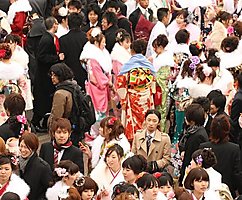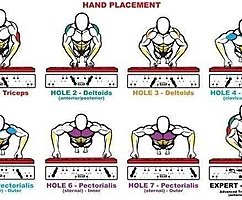The feeling of well-being
 Bashny.Net
Bashny.Net
Measuring well-being sensations are now routinely used in large-scale national surveys in the United States, Canada and Europe; Gallup World Poll extended these measurements at millions of respondents in the US and in more than 150 countries.
Polls provide self-reports on the eve of the emotions experienced, though not as detailed as in the method of reconstruction of the day. Huge sample provide material for a very precise analysis, confirming the importance of situational factors, physical condition and social contacts for the feeling of well-being.
Not a surprise that the headache makes people unhappy; second prediction accuracy indicator senses - Connect with your friends and family. It would not be exaggeration to say that happiness - to spend time with those you love and who loves you
.
Gallup poll data allow us to compare two aspects of well-being:
1. a sense of well-being throughout life;
2. The judgment on the well-being of life.
To assess the question of the questionnaire used in Gallup, known as the "Cantril ladder of happiness" (rating scale of their place in life): "Imagine a ladder with steps numbered from 0 (bottom) to 10 (at the top). The top rung represents the best possible life for you, the bottom rung - the worst possible life. At what rung of the ladder you are, in your feeling, you are right now? »
Some of the circumstances of life have a greater impact on the evaluation of life than feeling. Get at least a level of education: higher education is associated with higher ratings of life, but not with the more pleasant experiences
. In fact - at least in the United States - people with higher education increasingly complaining to stress. On the other hand, the poor health longer affects the feeling of well being, than the estimated life. Have children also significantly affects the everyday sensations (complaints of parents to stress and anger - the usual case), but the evaluation of life affects less. Religiosity is also a greater effect (in the positive sense) to positive feelings and stress reduction than the assessment of life. However, oddly enough, the religion does not help to reduce the feeling of depression or anxiety.
Analysis of more than 450 thousand questionnaires Gallup on the health and well-being (daily survey of 1,000 Americans) suddenly revealed a unanimous answer to the question that is most often asked when welfare research: Does money bring happiness? The conclusion is that poverty makes people unhappy, and wealth increases life satisfaction, but (on average) does not increase a sense of well-being
. Sharp poverty reinforces the feeling of other misfortunes. In particular, the disease is less well tolerated very poor than people with money. Headache increases the number of respondents who report sadness and anxiety - from 19 to 38% for members of the upper two-thirds of the population by income. For the poorest ten percent of these values are respectively 38 and 70% - a higher initial level and a sharp increase in
. Also found significant differences between the very poor and the rest of the population in the sensations of divorce and loneliness. Furthermore, the beneficial effects of output on the feeling of well-being is much less for the very poor than for the rest.
The level of "saturation", beyond which the welfare of the feeling grows, corresponds to about 75 000 dollars of income in regions with a high cost of living (and less - in the regions where the cost of living is lower). Above this level of well-being feeling is not accompanied with an increase in income.
This is strange, since a higher income, of course, allows you to purchase more treats (including holidays in interesting places, tickets to the opera, etc.) and ensure the improvement of the living environment.
Why are these additional pleasure are not reflected in the emotional well-being reports? A plausible explanation is that high income is usually blunts the ability to enjoy the small pleasures of life. This idea has a serious confirmation: During priming effect research students who have received the installation on the wealth of eating chocolate with less obvious pleasure
! Quite different income affects the perceived well-being and life satisfaction. Higher income and brings greater satisfaction, even after he has ceased to affect positive feelings. The overall conclusion with regard to the well-being as clear as in the case of colonoscopy Score person's own life and his real feelings may be related, but generally vary. Satisfaction with life - not as an infallible gauge feeling of well-being, as I thought a few years ago. This is something completely different.
Talking about the feeling of well-being:
"The aim of the policy should be to reduce human suffering. Society must strive to reduce the U-index (the proportion of time when a person experiences unpleasant sensations). Home -. To cope with depression and extreme poverty »
"The easiest way to have more fun, controlling the distribution of their own time. Try to find more time for what you love. »
"If you exceed the level of" saturation "of income you will be able to buy more pleasant sensations, but will be less enjoy cheaper».
Author: D.Kaneman "Think slow ... resolved quickly"
Polls provide self-reports on the eve of the emotions experienced, though not as detailed as in the method of reconstruction of the day. Huge sample provide material for a very precise analysis, confirming the importance of situational factors, physical condition and social contacts for the feeling of well-being.
Not a surprise that the headache makes people unhappy; second prediction accuracy indicator senses - Connect with your friends and family. It would not be exaggeration to say that happiness - to spend time with those you love and who loves you
.

Gallup poll data allow us to compare two aspects of well-being:
1. a sense of well-being throughout life;
2. The judgment on the well-being of life.
To assess the question of the questionnaire used in Gallup, known as the "Cantril ladder of happiness" (rating scale of their place in life): "Imagine a ladder with steps numbered from 0 (bottom) to 10 (at the top). The top rung represents the best possible life for you, the bottom rung - the worst possible life. At what rung of the ladder you are, in your feeling, you are right now? »
Some of the circumstances of life have a greater impact on the evaluation of life than feeling. Get at least a level of education: higher education is associated with higher ratings of life, but not with the more pleasant experiences
. In fact - at least in the United States - people with higher education increasingly complaining to stress. On the other hand, the poor health longer affects the feeling of well being, than the estimated life. Have children also significantly affects the everyday sensations (complaints of parents to stress and anger - the usual case), but the evaluation of life affects less. Religiosity is also a greater effect (in the positive sense) to positive feelings and stress reduction than the assessment of life. However, oddly enough, the religion does not help to reduce the feeling of depression or anxiety.
Analysis of more than 450 thousand questionnaires Gallup on the health and well-being (daily survey of 1,000 Americans) suddenly revealed a unanimous answer to the question that is most often asked when welfare research: Does money bring happiness? The conclusion is that poverty makes people unhappy, and wealth increases life satisfaction, but (on average) does not increase a sense of well-being
. Sharp poverty reinforces the feeling of other misfortunes. In particular, the disease is less well tolerated very poor than people with money. Headache increases the number of respondents who report sadness and anxiety - from 19 to 38% for members of the upper two-thirds of the population by income. For the poorest ten percent of these values are respectively 38 and 70% - a higher initial level and a sharp increase in
. Also found significant differences between the very poor and the rest of the population in the sensations of divorce and loneliness. Furthermore, the beneficial effects of output on the feeling of well-being is much less for the very poor than for the rest.
The level of "saturation", beyond which the welfare of the feeling grows, corresponds to about 75 000 dollars of income in regions with a high cost of living (and less - in the regions where the cost of living is lower). Above this level of well-being feeling is not accompanied with an increase in income.
This is strange, since a higher income, of course, allows you to purchase more treats (including holidays in interesting places, tickets to the opera, etc.) and ensure the improvement of the living environment.
Why are these additional pleasure are not reflected in the emotional well-being reports? A plausible explanation is that high income is usually blunts the ability to enjoy the small pleasures of life. This idea has a serious confirmation: During priming effect research students who have received the installation on the wealth of eating chocolate with less obvious pleasure
! Quite different income affects the perceived well-being and life satisfaction. Higher income and brings greater satisfaction, even after he has ceased to affect positive feelings. The overall conclusion with regard to the well-being as clear as in the case of colonoscopy Score person's own life and his real feelings may be related, but generally vary. Satisfaction with life - not as an infallible gauge feeling of well-being, as I thought a few years ago. This is something completely different.
Talking about the feeling of well-being:
"The aim of the policy should be to reduce human suffering. Society must strive to reduce the U-index (the proportion of time when a person experiences unpleasant sensations). Home -. To cope with depression and extreme poverty »
"The easiest way to have more fun, controlling the distribution of their own time. Try to find more time for what you love. »
"If you exceed the level of" saturation "of income you will be able to buy more pleasant sensations, but will be less enjoy cheaper».
Author: D.Kaneman "Think slow ... resolved quickly"
Tags
Personal development
psychology
women
men
relationships
life
happiness
harmony
love
children
money
wealth
success
See also
Mature relationship: dependent, independent and interdependent.
Emotional overload of modern woman
The more dangerous for women training if the leading man
Mature relationships: dependence, independence, interdependence
The woman and the way
If a man does not take responsibility for the welfare of women?
Unlived EMOTIONS - compelling Karma
HOW TO BECOME A clever woman
12 ANSWERS MOST IMPORTANT TEN YEARS OF LIFE
The difference between men and women within the meaning of love and family.
















